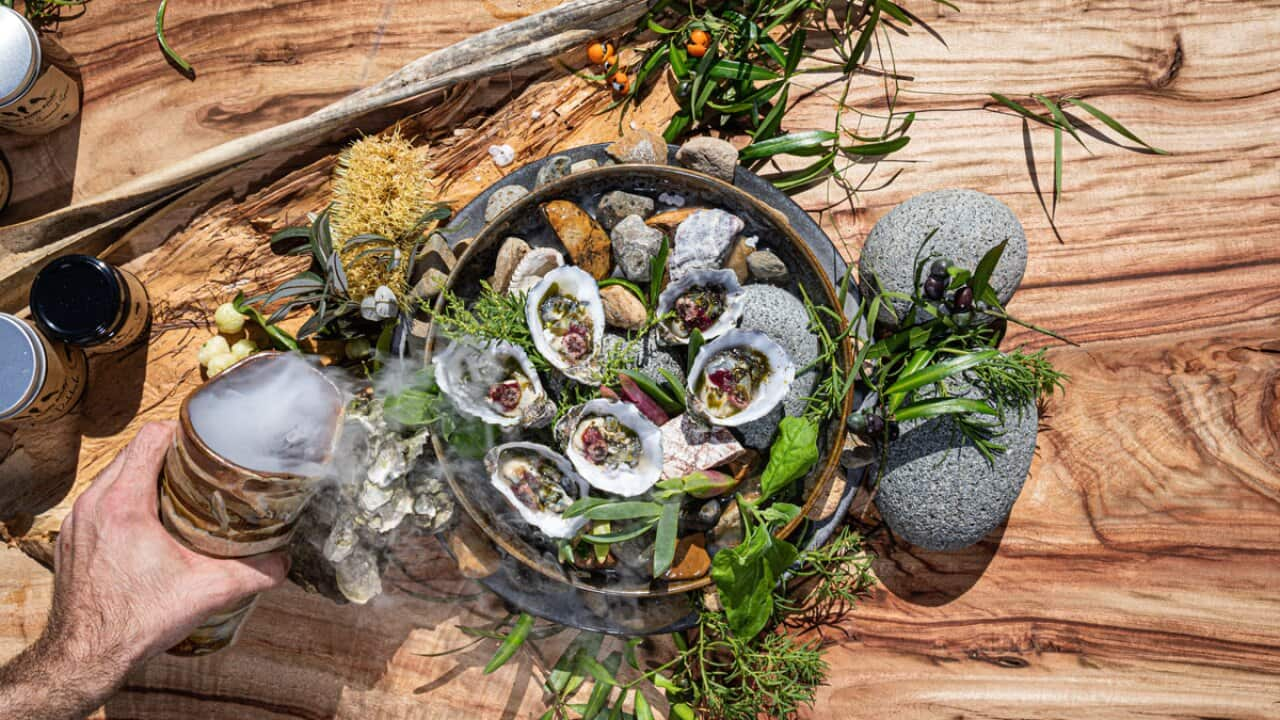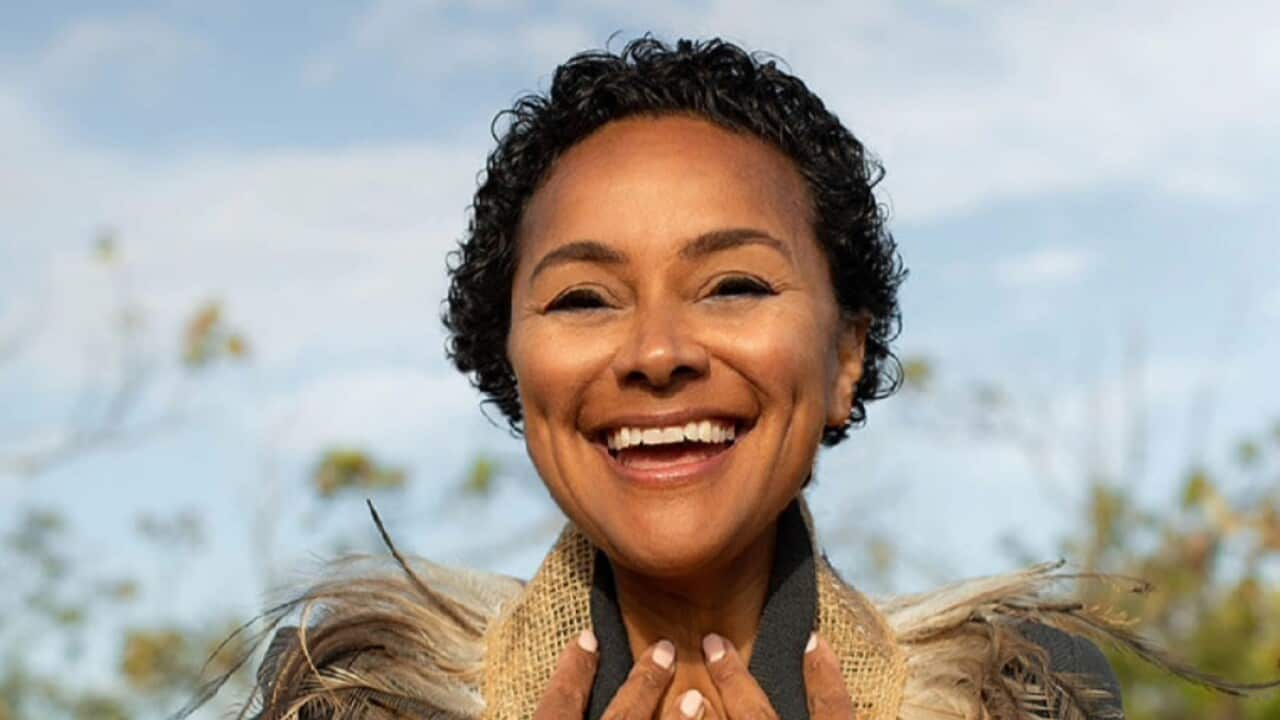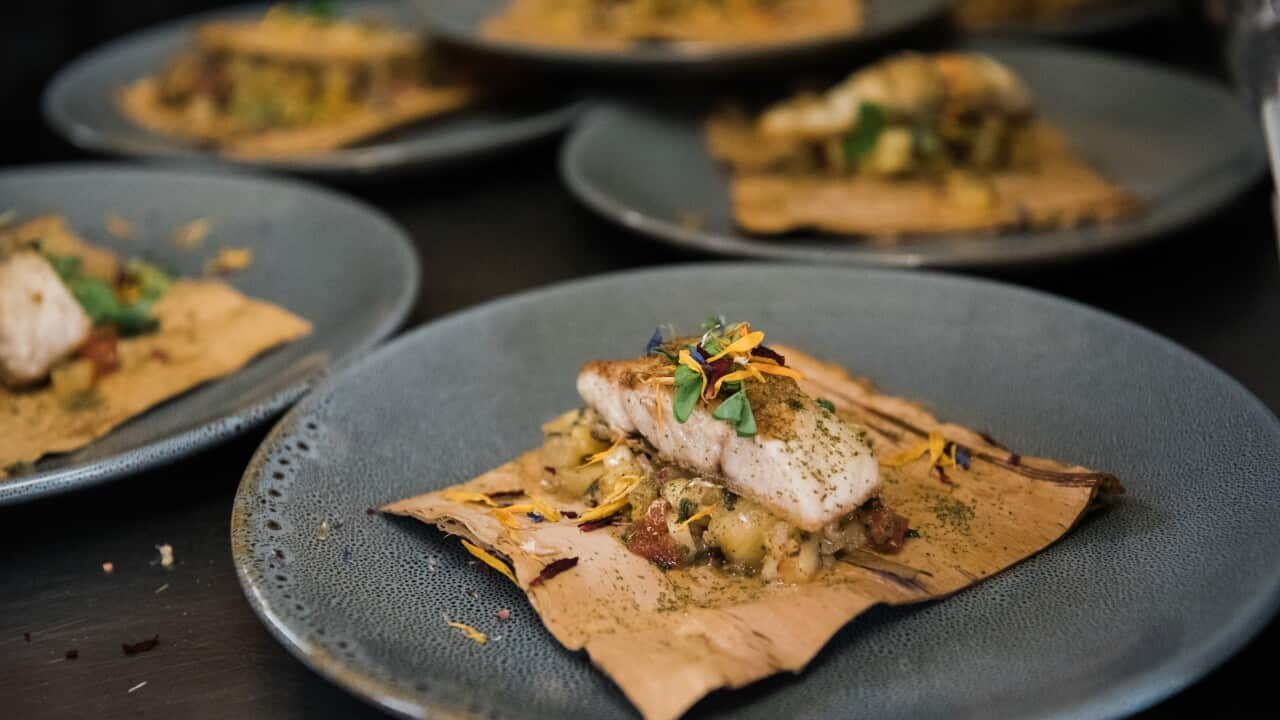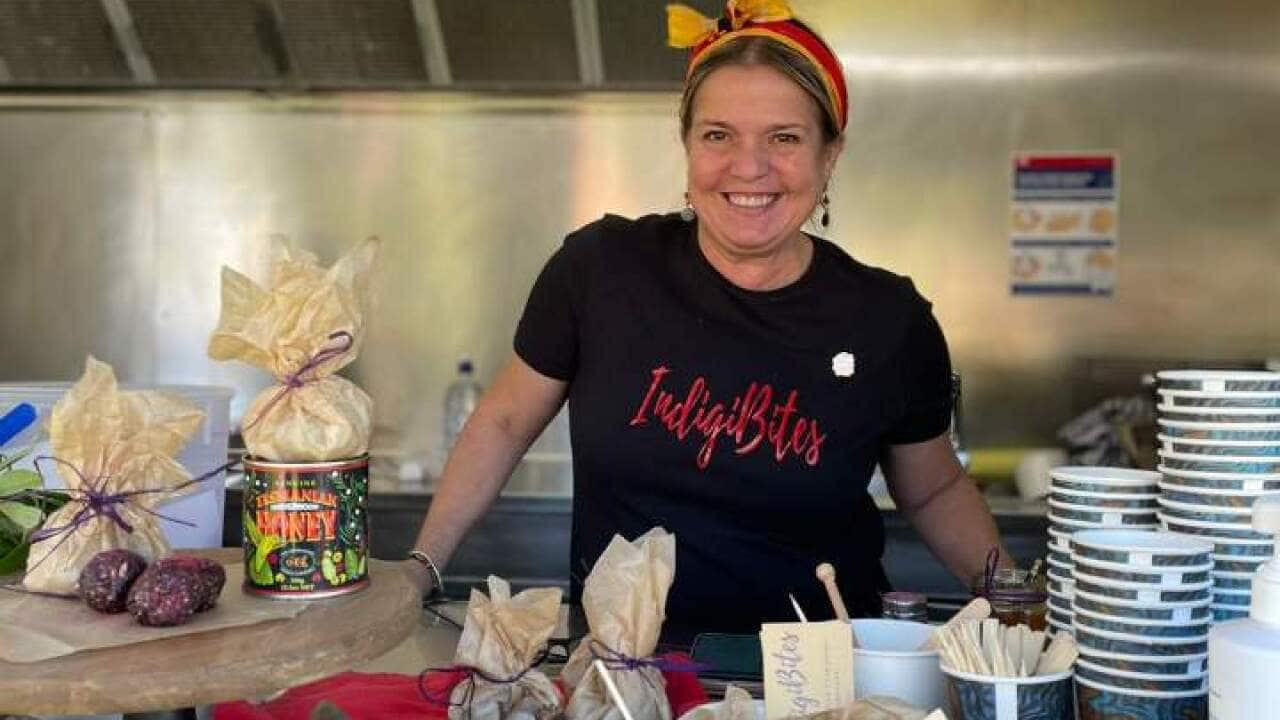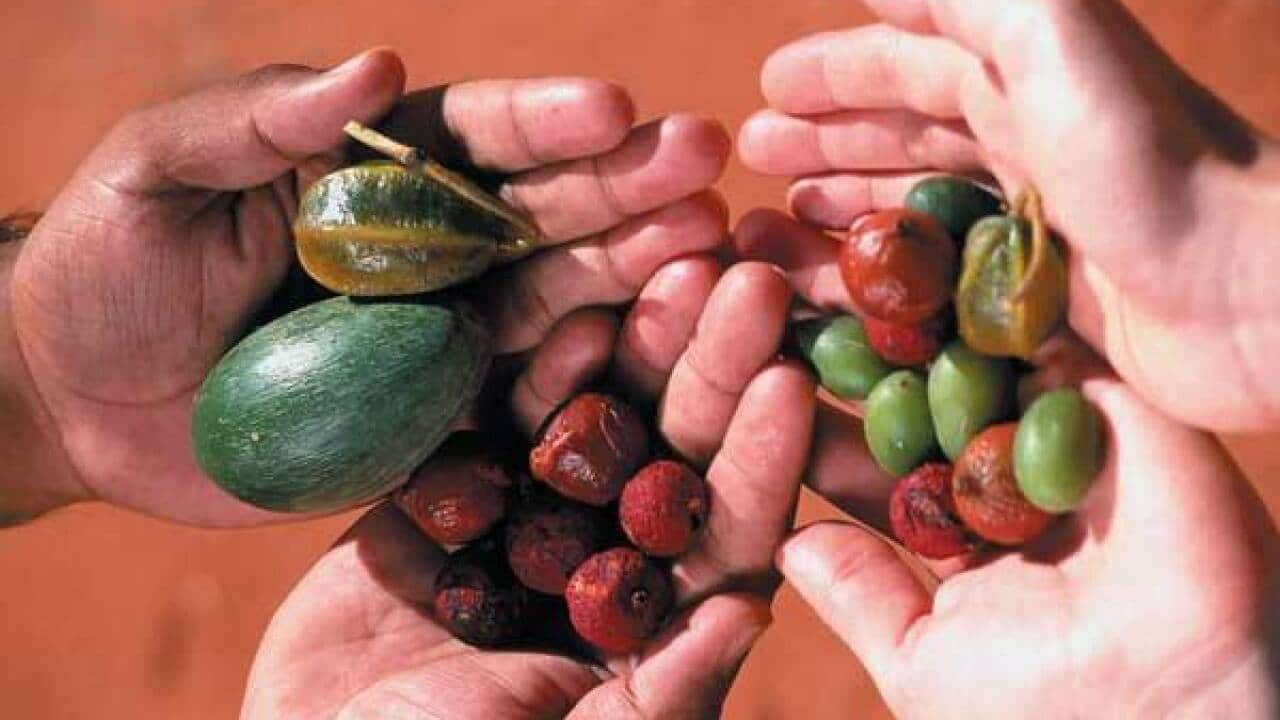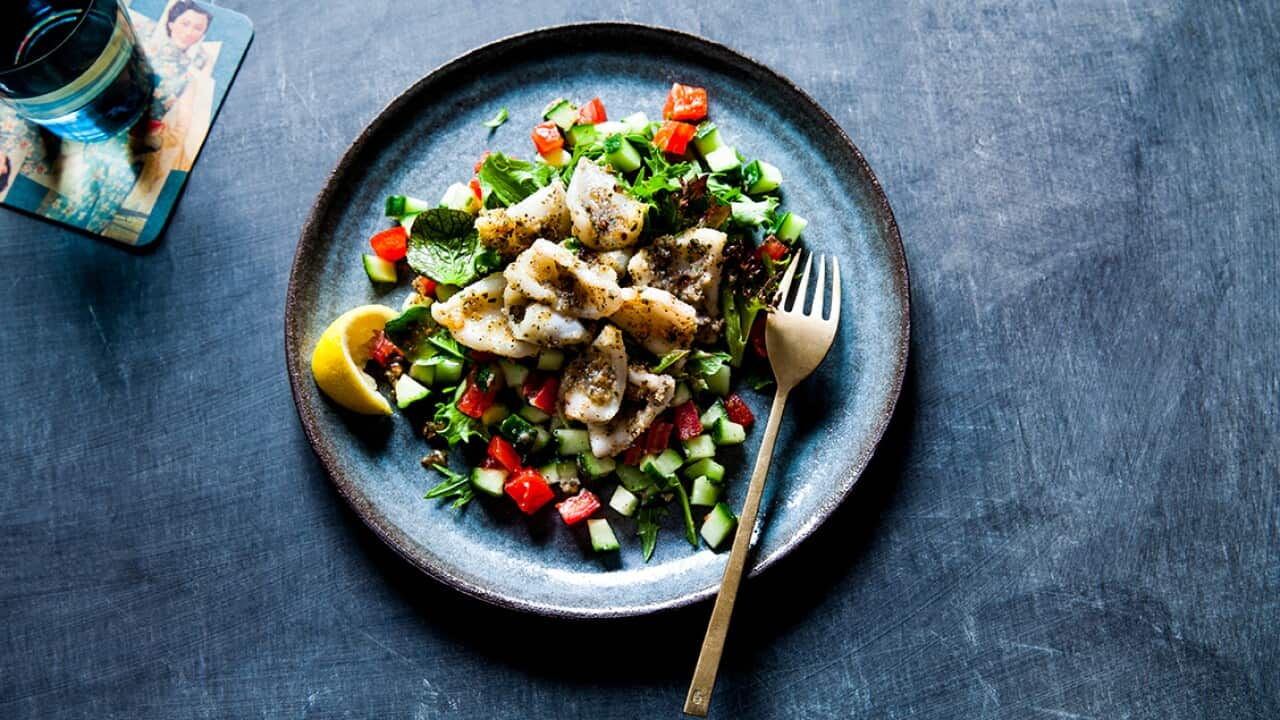There are many stories you can tell with seawater.
For , who runs Indigenous catering business , waves and tides can carry narratives about family and food traditions.
"My dad's ashes were spread in Redland Bay, on the way to ," he says, referring to the waterways near North Stradbroke Island, southeast of Brisbane.
"Three Little Birds was actually his favourite song by Bob Marley. That's why the business is called Three Little Birds," says Jordan.
The chef's earliest memories started to form "just after my dad passed away" – so he doesn't have personal recollections about his father. But you can't shake the seawater off the facts he does know about his dad.
"He loved oysters," the chef says. "He used to get them off the rocks." Then there were the hours that Jordan's father happily spent fishing.
The harmonies and choruses of his favourite song were heard long after he was gone, too. "My sister had Three Little Birds sung to her on North Stradbroke by my aunty," says Jordan.
The chef is too young to remember if he heard these intimate concerts, but his father's legacy lives on – via dishes and Indigenous ingredients that Jordan serves through Three Little Birds.
It's a world away from his first catering stints, which began as underground pop-up dinners in London nearly a decade ago. With much difficulty, he prepared six courses in a tiny cocktail bar on a Monday night – resorting to plating up on beer pong tables and even bathroom tiles. "It was pretty loose!" he says, and laughs. "I remember I had gin-cured salmon, curing in my lap, in a cab on the way to the venue!"
He went on to cater proper events for charities (Macmillan Cancer, Royal London Society For The Blind) and he even cooked for a supper club, where all the diners were blindfolded. This was a collaboration with theatre students, inspired by Shakespeare's A Midsummer Night's Dream. There were actors tickling guests with feathers and leaves and whispering in their ears. There was a Welsh opera singer at one point.
"It was quite random," he admits. Jordan prepared mustard seeds and pea flowers for the first course – a reference to the fairies in the play (one is named Peaseblossom and another is Mustardseed).
When he returned to Australia, he decided to explore his First Nations heritage further – through cooking, learning directly from different First Nations communities and studying Indigenous philosophy at the University Of South Australia.
He recalls a memorable encounter with from , who runs Indigenous cultural cruises and supplies emu eggs and other native ingredients to restaurants like and .
"The first time I met her, I was telling her my story." He explained the significance of the song Three Little Birds – which she didn't know. "Can you sing it for me?" she asked.
"I started to sing it and then three black cockatoos flew directly over us. And that day, she shared a wealth of knowledge and put healing Country into perspective for me."
Even though it wasn't his Country, it was the first time he felt really connected to the land. "It was really special," he says.
For Jordan, acknowledging his roots hasn't always been a straightforward process.
"I guess, intergenerationally, it wasn't something we were proud of – a lot of my family weren't identifying [as Indigenous]. We're still tracing things back," he says. "It's a journey I'm still on…So we still don't know which mob we're from." But he says he's "proud" of running an Indigenous business that celebrates First Nations culture in a community-gathering way through food. "It means a lot to me."
Indigenous ingredients have played cameos in the various kitchens he's worked at: there was the citrus burst of finger lime during his apprenticeship, while saltbush, sea purslane and karkalla evoked local landscapes and expanded his culinary vocabulary at Melbourne's Pei Modern.
But he counts moving to Brisbane to work with and her catering company, , as the start of his education in Indigenous foods. "She's been mentoring [me] and sharing her extensive knowledge of bush foods."
"Our coastal systems are highly in danger. I think we're about to go over a tipping point globally," he says. He hopes this event helps alert people to what's happening, so they can act on that knowledge.
"Midden is the best metaphor for that passage of time before colonisation," he says, referring to the first dish and what it reflects. were a meeting place for Aboriginal people to eat shellfish. They're an incredible example of sustainability: middens were decorated with the shells of sea creatures, to track which species were eaten, so they weren't overfished. The shells also fed nutrients back into the earth. It illustrates how Indigenous people took care of the land for 65,000 years – and how we should draw on that knowledge to deal with the ecological damage caused by an industrialised world.
"I live with two marine biologists, so they let me know !" he says. "It's pretty dire straits."
"I really want to highlight the absence of this [minimising waste] within the commercialised food industry and directly link that to the bleaching of coral and loss of life in our coastal systems."
"Water is timeless, but is it actually timeless if the life is gone and the connection is gone? It could be a very short future [for the world]," he says.
"Together with Indigenous voices and leadership, we can begin to not only heal Country, but heal society, through regenerative practices and true reconciliation. A deeper understanding of place can lead to a place for future generations and everyone who calls this place home is responsible for its future," he says. "It's time to heal and come together as one."
Stream free On Demand

Island Echoes With Nornie Bero
series • cooking
PG
series • cooking
PG
CELEBRATING INDIGENOUS AUSTRALIAN FOOD
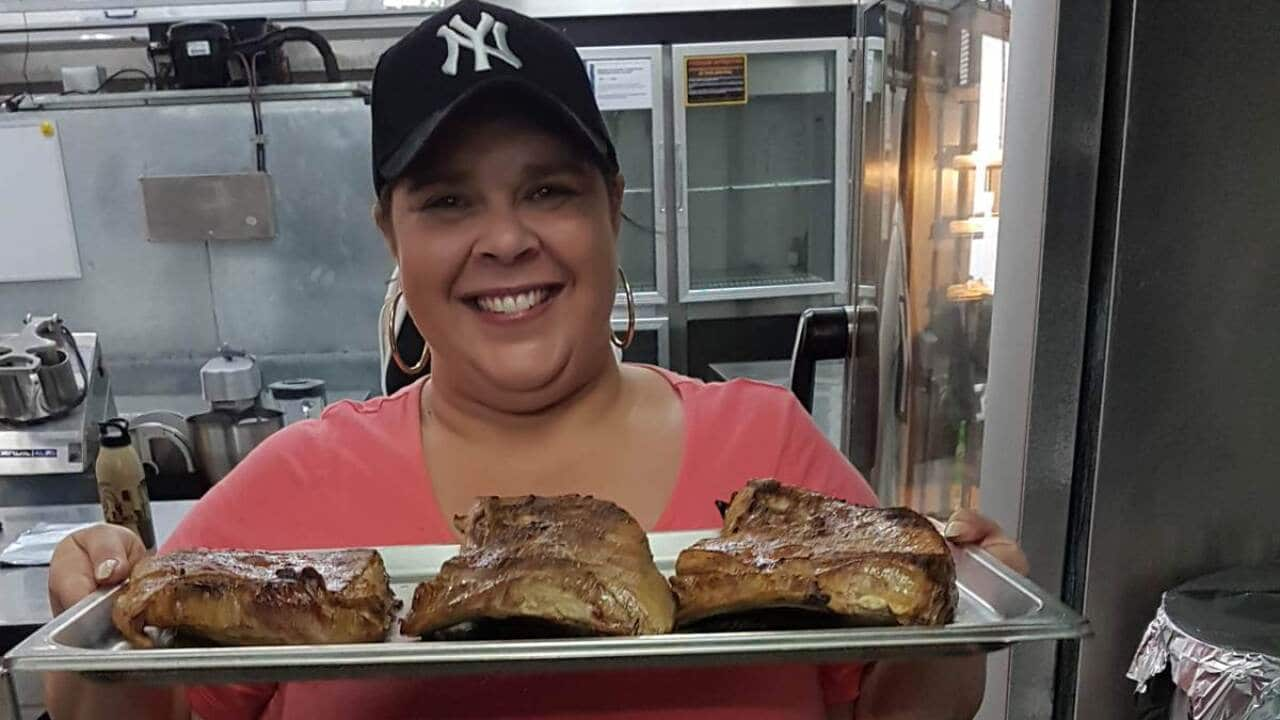
Why this proud Ualarai Barkandji woman educates others about bush food

